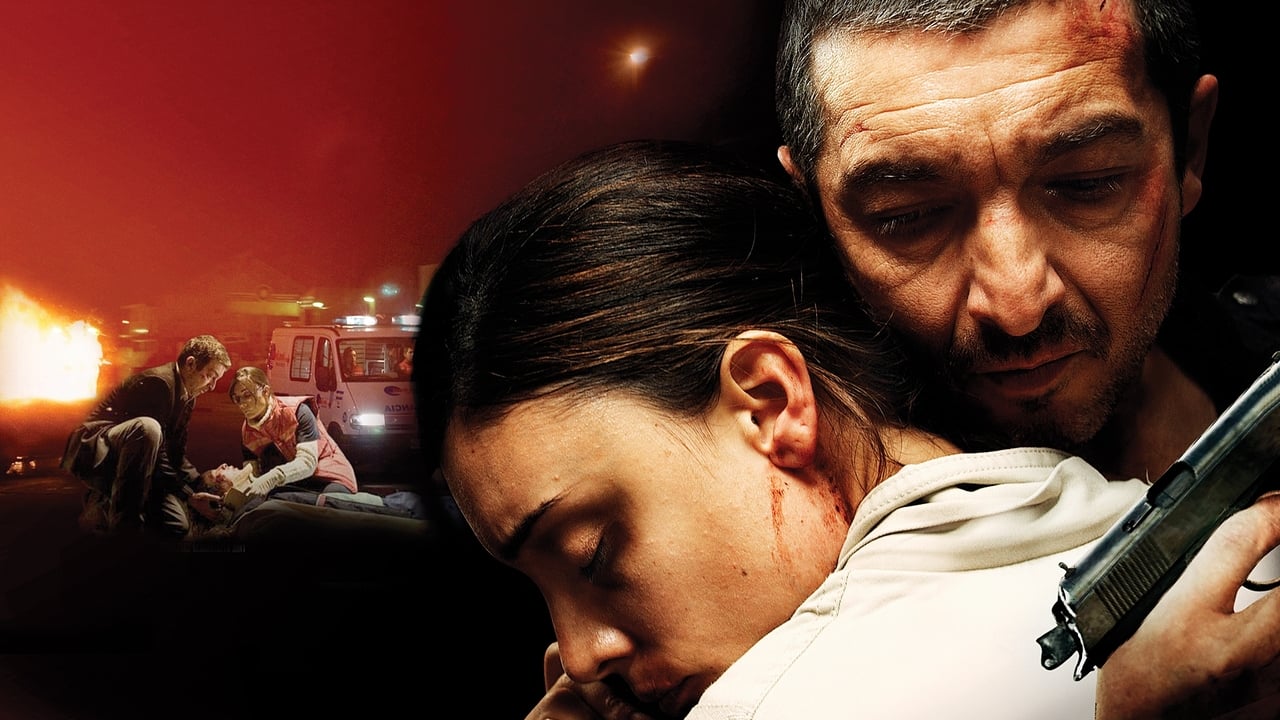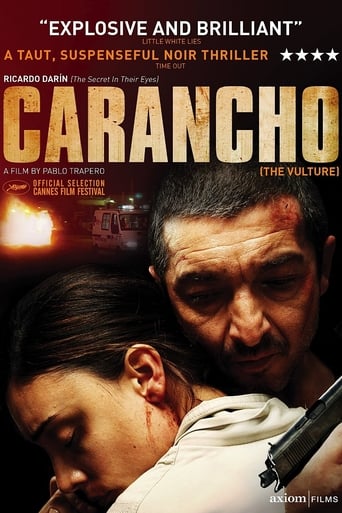



Undescribable Perfection
Good movie but grossly overrated
Expected more
As Good As It Gets
As Argentinian, one of the most important things that i like of our actors is that they act normal like in real life. Not overact as i can see in many Hollywood stars. I like to see people blaming, fighting, feeling as we do in real life, i think is one of the most strong values of our good actors. I can tell you we are like him, Ricardo Darin resume exactly how we the argentinians talks and gesticulate. The dark like of the movie and the places is nothing more than the reality of the streets, the reality of hospitals. They are so human and common that they can do the movie perfectly credible, 'cause, everything (except the love history) is a every day real situations. Of course is not everything tetricus and bad, is a part, there is also good and nice places, but this movie is focused on the dark side.I strongly recommend this movie, and i wasn't expecting much for this one when i started to see it. It will make you sit and watch all the movie without any second of distraction, every minute worth. Very human, very real, great acts, great camera work (better than i expect for our cinema), everything is very well done.
View MoreIn Buenos Aires, Sosa (Ricardo Darin) is a lawyer that has lost his license and works in a corrupt foundation, chasing in public hospitals and police stations victims of traffic accidents to claim their insurance rights. Dr. Lujan (Martina Gusman) is a young drug-addicted doctor that has come from the provinces and works in an ambulance and in the emergency service of a public hospital. When Sosa meets Lujan, he falls in love for her and tries to recover his license and move to the provinces to star a new life. But he is trapped to the corrupt system and the mafia does not let him go."Carancho" is a gloomy romance about the mafia of accident and insurance in Argentina. The story of a man that can not set free from his past and drags a young doctor to the underworld is engaging, but the irony and the dark humor of the conclusion does not work and is very disappointing. My vote is six.Title (Brazil): "Abutres" ("Voltures")
View MoreIn the 60's there was a phenomenon in Latin-American literature that is today reduced to the word "boom". A very good number of writers throughout the continent began producing groundbreaking work, they broke every formula and introduced new possibilities to literature, unknown so far. Márquez, Rulfo, Llosa, and notably, in Argentina, Cortázar and Borges, among others. Today that trend still weaves its consequences (Chico Buarque has been a revelation as a writer, although Brazil is quite a different world). But i think that lately, those willing to explore new territories in narrative and storytelling have been working more in cinema. Márquez and Borges are 2 well known (and great!) film goers and critics. Anyway, Latin-American cinema today is the heir to the developments in Latin-American literature produced in the last 50 years. In the argentinean case, there was a major set-back in the country at the beginning of this century, corruption and incompetence led the country to bankruptcy, and the intellectual class rebels against that, so (like in Brazil!), argentinean cinema is usually densified by the social concerns of argentineans.Literature and social context are, thus, the 2 great frames where a film like this is integrated.And what a good film. The first thing done here is the establishment of a strange world, of people who live under different routines, performing different jobs, conquering the world in a different way, yet in the same sets of the ordinary "real" life, with which once in a while they intersect. The man, someone who chases people who've been run over by cars to collect the insurance money, and many times simulates the running over. The woman, who lives by night, as a doctor on site for first aid. And the insight into a corrupt underworld, where we only hint that somewhere close there are honest people. By itself this is a bizarre, tense, and cinematic world worth visiting. Over it, there is a layer of poetic sensitivity that eventually springs out of the male character, through his infatuation with the woman. So, on the core, we have a common story of a weak man who redeems himself because of love, but set in a strange repulsive yet fascinating world. This could be a short by Cortázar.And on top of everything, the wheel that makes this world spin, is the boldness and visual power with which this is made. Practically every significant shot is enormous and without cuts. For how the camera is handled, we're entering the vast beautiful tradition of Orson Welles (that from Touch of Evil) as interpreted by the incredible Alfonso Cuarón, notably on a huge film, Children of Men. This camera is unobtrusive yet manages to be on it should be. It knows everything that's going to happen, and it plays with us to show us more often than not and off-field that's puts us away from the action only to find us as unaware of what's going on as every other character in the film. This is really top work, i don't remember seeing this kind of visual grammar so well manipulated recently. Quite apart from the production obstacles of engineering such long shots, and the tough acting of these actors, with really fine performances, i was amazed at the level of manipulation employed, how this director and DOP understand the subtleties of the devices they use. I'll want to see more of them. Anything. Of all the sequences, the final 8 or 9 minutes are the best. See over and over again if possible, the last shot. *possible spoiler* the camera starts at a garage, goes on to the inside of a car, assists to a car crash, sees a street shooting, enters another car, to end up with yet another car crash. Without cuts, with a vividness and wildness with few precedents. What a ride!My opinion: 4/5
View MoreOne thing that works in this movie is the chemistry between Sosa and Lujan, a discredited lawyer and a drug-addicted emergency room doctor with a self-destructive personality. The picture comes close to the Warner Bros. B-picture genre of the 40s, with the exception that there is no on-screen moral center. Lujan, played by Martina Gusman, quickly moves over to the dark side. Cynically, her drug addiction feels like an after-thought added by one of the writers to explain her compulsions, that go so quickly out of control. Her attraction for Sosi comes out of left field, and the drug addiction is probably an attempt to justify this, but seems over the top and unnecessarily to stack the deck against her. In any case, her habit should have been introduced earlier. The lawyer, Sosa, played by Ricardo Darin, is nasty. He goes after Lujan's assailant with uncontrolled violence and rage --far different than Bardem's understated emotional turmoil in 'Biutiful,' in a similar situation. Finally, why the incomprehensible deus-ex-machina ending? The filmmakers had a more interesting setup than I think they knew how to develop.
View More